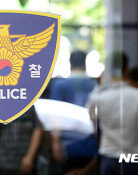Confidence in tax affairs should not be broken like this
Confidence in tax affairs should not be broken like this
Posted July. 16, 2020 07:34,
Updated July. 16, 2020 07:34
“Actual owners of homes – for example, those who have only one home – will experience little change in real estate tax system,” Minister of Land, Infrastructure and Transport Kim Hyun-mee said on radio on Tuesday, refuting the controversy surrounding real estate tax increase. Unlike her comment, Seoul citizens are already facing tax increase as they have received property tax bills with figures 22 percent higher than last year on average.
The Moon Jae-in administration has included tax system changes for most of its 22 housing packages, starting from August 2, 2017 to July 10, 2020. While the ruling party emphasizes that the packages have only targeted multiple homeowners, gross real estate tax rates have increased by 0.2 to 0.7 percentage point for even single homeowners in 2018. In addition, the ruling party plans to pass the December 16, 2019 package, which will bring the additional 0.1 to 0.3 percentage point increases in gross real estate tax rates for single homeowners, at the National Assembly until the end of this month. The government has also quickly increased the declared values of homes despite the criticism of expedient tax increase. This has created a situation where the government has driven up housing prices with politically biased measures while shifting responsibility to homeowners with punitive taxation.
As the real estate-related tax system is utilized as a major tool for housing policies, it has become a free-for-all. A system to impose a heavier transfer tax on multiple homeowners, which was revived by the current administration in 2017, has gone through several tax rate and application scope changes, including the measures launched on July 10 this year. This has produced the so-called “Yangpo” tax accountants in the country, who refuse transfer tax calculation requests due to the lack of his or her understanding of the tax system. The basic principles of tax affairs – tax system should be easily understood and predictable; and sufficiently advance notice should be given in the case of revisions – are being completely ignored.
Some real estate tax rates are so high that it almost feels like penalties. With the introduction of the July 10 measures, the highest gross real estate tax rate imposed on those who have three or more homes, or two or more homes in restricted areas will increase to 6.0 percent. This means such owners will have to pay 50 percent of their real estate values for 12 years, and 75 percent for 24 years. Most experts believe that a property tax rate of over 3 percent encroaches quickly on the value of original assets and thus violates the property rights of citizens. If the highest transfer tax rate of 72 percent and the acquisition tax rate of 12 percent imposed on multiple homeowners are passed by the National Assembly, South Korea will become the country with the highest holding tax and transfer tax rates among the members of the Organisation for Economic Co-operation and Development.
All of these problems have started with the current administration’s forced policies to address the real estate issues with excessive taxation, rather than standard tactics, such as the expanded housing supply. As it has been used far too often as a tool to achieve the political goal of speculative investment control, the tax system is losing stability and people’s confidence in it while resistance to the system is growing. The current real estate tax system has gone far off the rail to a degree that any future administration will have to think about how to undo what’s wrong. Further mobilization of the tax system for the “real estate politics” may destabilize the foundation of the country.







